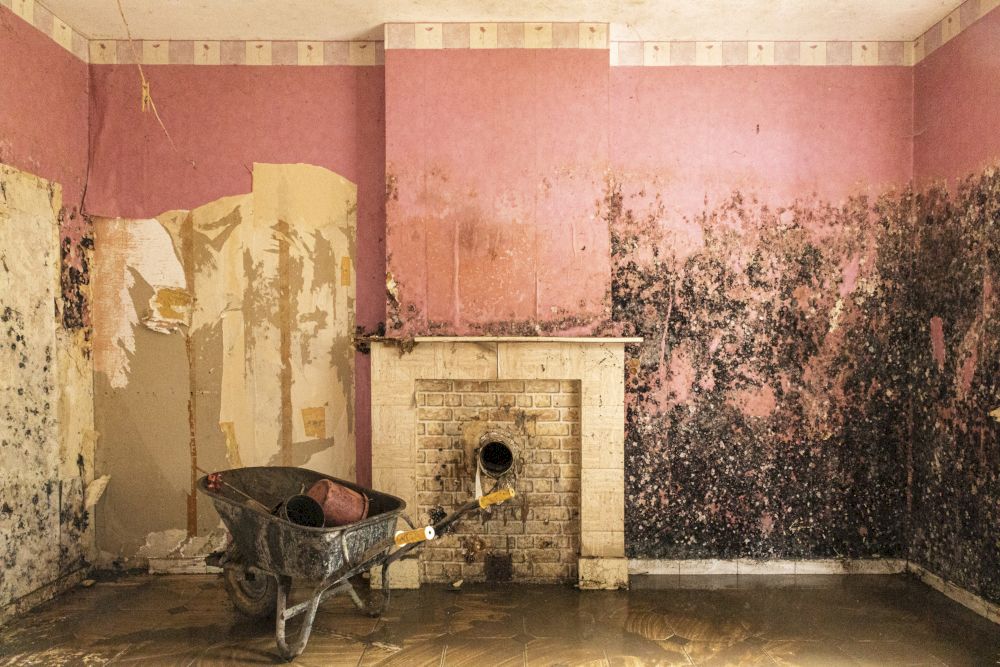Terminé le 22.05.22

Présenté dans laGalerie du Soir
Danielle Rombaut. Au-delà du concevable
All young photographers are not barely out of their teens. Some have led another life before indulging in the pleasure of the lens. Such is the case of Danielle Rombaut who, until 2019, was a federal civil servant at FPS Finance. “I was no longer happy in my job,” she confesses. “I wanted to do something else; I wanted to develop.” She then took a career break and decided to explore several sectors that had always interested her: photography classes, ancient history courses, upholstery classes, etc.
In no time, the photography classes that she began in 2019 at LBC Mortsel (her hometown, near Antwerp) monopolised her entire time and made her want to go farther. She then enrolled for another adult education course at Encora Berchem and decided to devote herself entirely to photography.
In July 2021, she discovered the devastating extent of the floods in Wallonia and parti- cularly between Verviers and Liège. Seven weeks later, she travelled to Liège for a photo assignment. While consulting Google Maps, she realised that she was only fifteen or so minutes away from the area affected by the massive flooding of 14th July. Keen to see how far things had changed in a month and a half, she decided to travel to the area in the afternoon.
Around 4 p.m., she arrived in Pepinster, one of the worst hit municipalities. She tells her story: “I passed in front of the Delhaize supermarket car park and saw ladies in a mobile laundry specially built for that purpose. It looked like a picture from a third-world country where women do their laundry outdoors.”
Stuck in the traffic jam that local people in the area have been experiencing since mid-July due to many road closures, she observed the scene and the people and finally parked in a dead-end street on the banks of the Hoëgne and walked back on foot. A man came out of his house very quickly. “He wanted to talk. He had bought his house five or six years earlier, after a divorce and had almost completed renovations. In 24 hours, the entire ground floor had been flooded and he had lost everything. “But we must go on. We have to go on,” this man repeated and said that he was happy to be able to go to work during the day but it was a painful shock every evening when he came home.
The photographer very soon met other people who came to her, needing to talk. They talked to her about all they had lost, about the fear of a new downpour, about rising river levels and a new disaster.
Seven weeks after the floods, the cars piled into one another, the house fronts on the point of collapsing, the heaps of waste still gave an impression of battlefield scenes. With her camera strapped over her shoulder, Danielle Rombaut continued on her way, encountering many inhabitants. “People need to talk. And so do I,” she explains. “They have absolutely no objection to being photographed.”
Perhaps because the photographer in question was not just passing through. She, who arrived by chance, decided to stay and continue to explore the area the next day. And then to come back the following weekend. To tell a tale, meet people, capture the moment and share through her pictures.
Pictures that exude a strange beauty at the same time as an absolute feeling of loss which the photographer has been able to encapsulate with sensitivity and intelligence.

